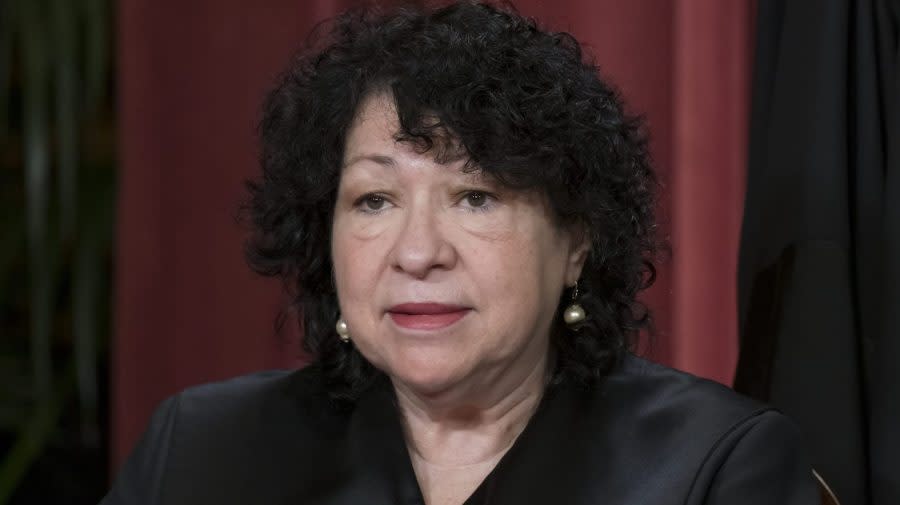Sotomayor chastises Supreme Court for allowing Texas law to stand

Supreme Court Justice Sonia Sotomayor sharply rebuked the high court’s majority Tuesday for temporarily allowing a Texas law to take effect that empowers state law enforcement to arrest people they suspect of illegally entering the United States from Mexico.
In her dissent, Sotomayor warned that, in allowing this highly controversial law to take effect without first carefully considering its constitutionality, “the Court invites further chaos and crisis in immigration enforcement.”
“Texas passed a law that directly regulates the entry and removal of noncitizens and explicitly instructs its state courts to disregard any ongoing federal immigration proceedings,” Sotomayor wrote in her dissent, which was joined by Supreme Court Justice Ketanji Brown Jackson. “That law upends the federal-state balance of power that has existed for over a century, in which the National Government has had exclusive authority over entry and removal of noncitizens.”
“The Court gives a green light to a law that will upend the longstanding federal-state balance of power and sow chaos, when the only court to consider the law concluded that it is likely unconstitutional,” Sotomayor wrote.
Texas Gov. Greg Abbott (R) signed the far-reaching statute, SB4, after it was passed by the GOP-controlled Legislature. The new law makes illegal immigration a state crime, thereby enabling state and local law enforcement to arrest undocumented migrants, who could then face deportation or jail time.
The Biden administration sued to block SB4, arguing it is an “unprecedented intrusion into federal immigration enforcement.”
“There is no ambiguity in SB4,” U.S. Solicitor General Elizabeth Prelogar said. “It is flatly inconsistent with federal law in all its applications, and it is therefore preempted on its face.”
Top Stories from The Hill
Supreme Court green lights Texas law that allows state police to arrest migrants
Supreme Court unanimously rules against government in No Fly List case
Trump says he’d have to hold ‘fire sale’ of properties to meet $464M bond
Trump sues ABC and Stephanopoulos, alleging defamation over Mace interview
A federal district judge blocked the statute, but the 5th U.S. Circuit Court of Appeals later issued an administrative stay allowing the law to take effect temporarily.
The Justice Department then sought emergency relief from the Supreme Court, in an effort to put the law on hold. But the Supreme Court, in its decision Tuesday, opted to return the case to the appeals court for a ruling on whether the law should be paused while the appeals process plays out.
Administrative stays are typically only implemented for a brief period until the court can decide whether to issue a longer pause. Sotomayor said she is concerned the 5th Circuit has allowed the administrative stays to linger, effectively allowing laws to take effect without undergoing careful review of their constitutionality.
“Although the Court today expresses no view on whether Texas’s law is constitutional, and instead defers to a lower court’s management of its docket, the Court of Appeals abused its discretion by entering an unreasoned and indefinite administrative stay that altered the status quo. This Court stands idle. Because I cannot, I dissent.”
“The Fifth Circuit has not yet weighed in, but nevertheless issued a one-sentence administrative order that is maximally disruptive to foreign relations, national security, the federal-state balance of power, and the lives of noncitizens,” Sotomayor wrote. “The Court should not permit this state of affairs. I dissent.”
For the latest news, weather, sports, and streaming video, head to The Hill.


